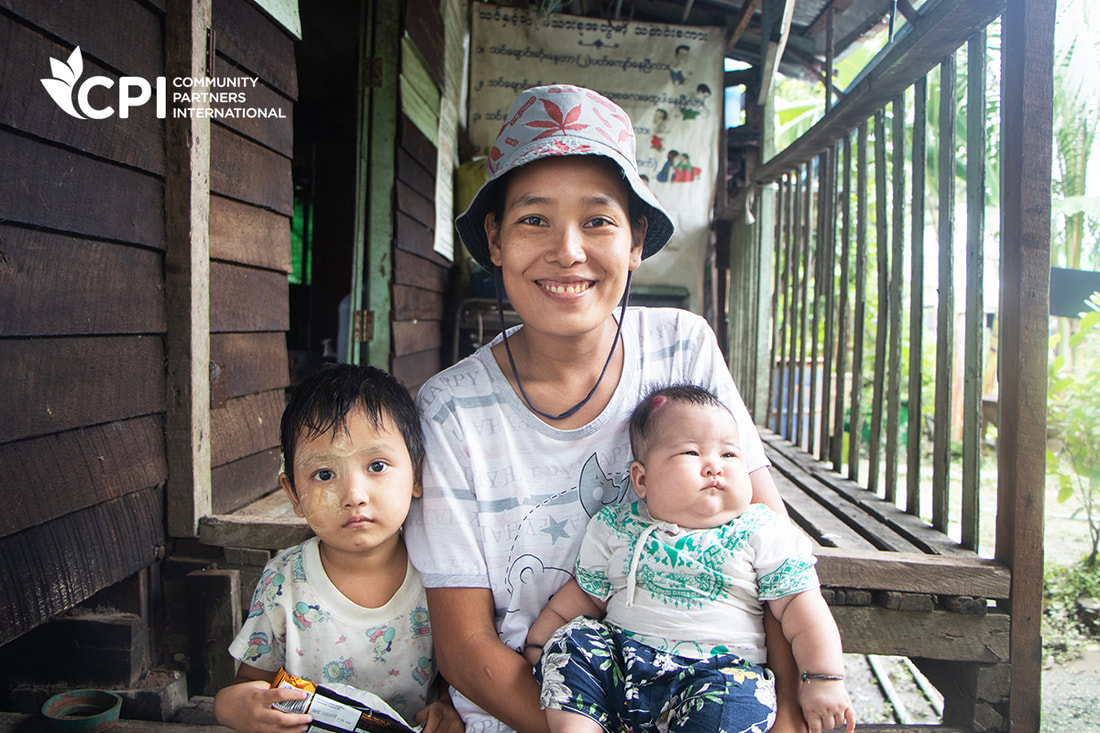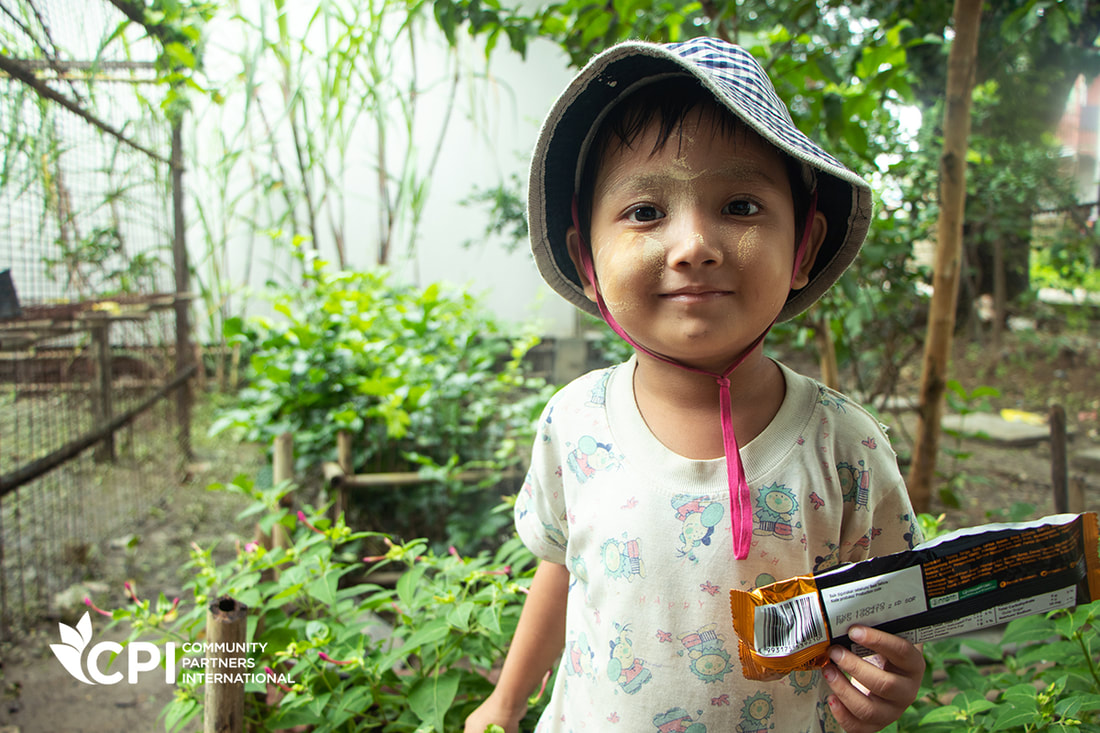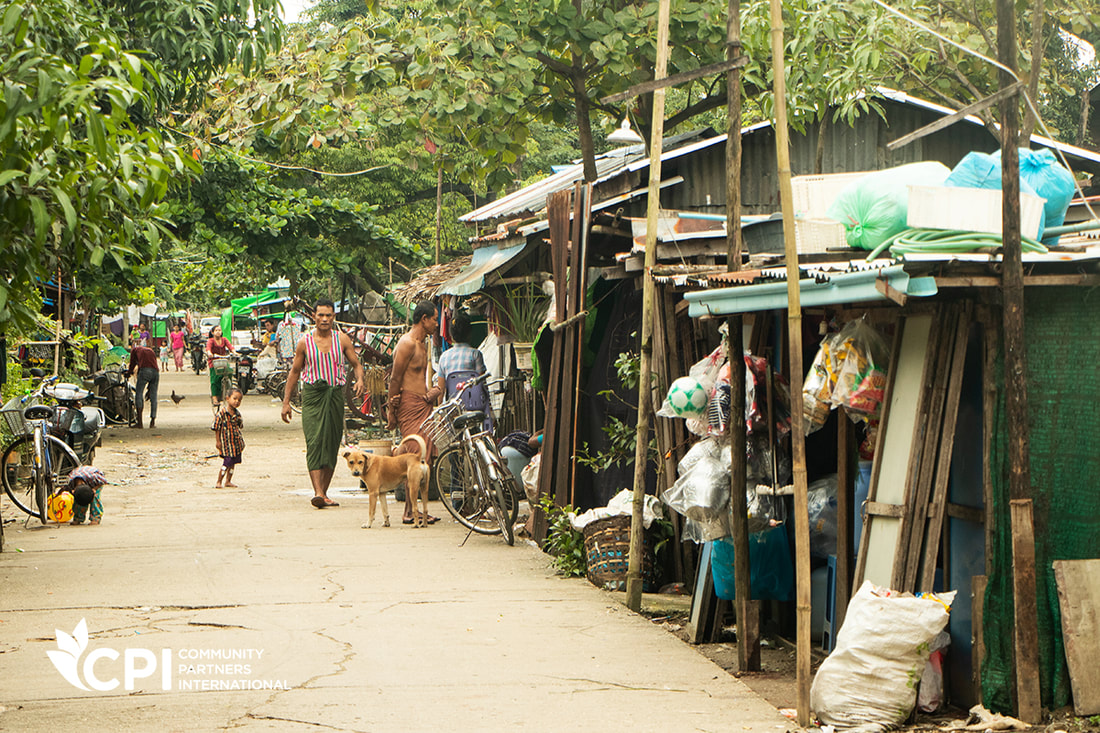Community Voices: "I have to mix my daughter's TB pills with candy to persuade her to take them."9/17/2019
Daw Thet Thet lives with her husband and two young daughters, a three-year-old and a baby of six months, in Hlaingtharya, a low-income suburb of Myanmar’s commercial capital, Yangon. A few months ago, Daw Thet Thet’s husband, a motorbike taxi driver, started coughing and having fever. Concerned about costs, they delayed seeking health care until the situation became serious. “We decided to go and see the doctor when he couldn’t work because of the fever. He was diagnosed with tuberculosis.” Daw Thet Thet says. Myanmar is among the 30 countries in the world with the highest burden of tuberculosis (TB), TB and HIV coinfection (TB/HIV) and multidrug-resistant TB (MDR-TB). In 2017, there were an estimated 191,000 new TB infections in Myanmar, including an estimated 14,000 cases of MDR-TB, and close to 32,000 deaths attributed to TB or TB/HIV coinfection.[1] Yangon Region is particularly severely affected, with one in every six TB cases and more than half of the MDR-TB occurring there in 2016.[2] When her husband was diagnosed, she began to worry about her children and whether they might also have TB. “My mother-in-law advised that my daughter should take a TB test,” she says. “One of her neighbors works as a volunteer with a local organization, Lin Yaung Chi, and she said they could help. My daughter was tested and diagnosed as TB positive.” Lin Yaung Chi is a community-based organization supported by Community Partners International (CPI) that works with low-income communities in Hlaingtharya to increase awareness of TB, and identify and refer suspected cases for testing. Lin Yaung Chi helps those who test positive to get appropriate treatment and ensure treatment completion, pays for their transportation to collect medication and attend check-ups, and provides supplementary nutrition to aid their recovery. Daw Thet Thet used to work in a textile factory earning 200,00 kyat (around US$130) each month. When her second child was born, she gave up her job so that she could look after her children. However, with her husband unable to work due to ill health, the family was pushed into severe financial hardship. “We survive solely on my husband’s income. He earns between 5,000 and 8,000 kyat (around US$3-5) per day but now he often has to miss working days. We cannot treat our daughter without Lin Yaung Chi’s help. They pay for transportation costs to travel to and from hospital for testing and medicine collection, and also support us with eggs, rice and cooking oil each month.” The family’s home measures just eight feet by eight. Living in such a small space significantly increases the risk of TB infection. “Lin Yaung Chi staff suggested that we use separate items like plates and spoons, and I am trying to follow their advice. My husband is also sleeping separately until he finishes his treatment.” Daw Thet Thet’s daughter began her TB treatment in July 2019. “I was worried about her when she started taking the TB medicine but so far there have been no problems. The biggest challenge is to persuade her to take her pills every morning. She always refuses to take them at first so I have to mix them with candy to convince her. The doctor said that she needs to continue treatment for a full six months.” The family’s situation is shared by many in Hlaingtharya where low wages, precarious work, poor housing and crowded living conditions are widespread problems. “People migrate here to find work,” says Daw Mar Mar Oo who leads Lin Yaung Chi. “They can rent a room for around 50,000 kyat (around US$30) per month with no deposit. Most work in factories, as peddlers and motorbike taxi drivers. Some families share accommodation to reduce the cost and TB can spread easily.”
As families struggle to survive, there is little time or money to focus on health care. Like in Daw Thet Thet’s husband’s case, they often delay seeking care until the last minute. “We have to conduct sessions frequently in the township to raise awareness of TB signs and symptoms, and let people know where they can find testing and treatment,” says Daw Mar Mar Oo. “It is important that we let them know that TB is a curable disease and that the government will provide the medicine for free." Lin Yaung Chi’s biggest challenge is helping patients diagnosed with multi-drug resistant TB (MDR-TB). MDR-TB is a form of the disease that does not respond to standard TB drugs and is far harder to treat. “We take more time to cure a patient with MDR-TB. Many patients get depressed when they have to endure such long treatment. We offer them psychosocial support and encourage them not to give up,” says Daw Mar Mar Oo. Lin Yaung Chi began supporting TB patients in 2008. Since then, they have enrolled 600 patients, 200 of whom have successfully completed TB treatment. They continue to help the remaining 400 to complete their treatment. Support to Lin Yaung Chi is provided by Community Partners International under the Nae Thit Project. [1] Global Tuberculosis Report 2018. Geneva: World Health Organization; 2018. [2] Annual Report 2016. Nay Pyi Taw: Ministry of Health and Sports, National Tuberculosis Programme, 2018 Comments are closed.
|
AuthorCPI Admin Archives
July 2024
Categories
All
|
|
|
COMMUNITY PARTNERS INTERNATIONAL
580 California St Fl 16, Ste 1658, San Francisco, CA 94104-1068, USA [email protected] +1 510 225 9676 We are a registered nonprofit 501(c)(3) Public Charity. TAX ID 94-3375666 |
©
Community Partners International




 RSS Feed
RSS Feed
